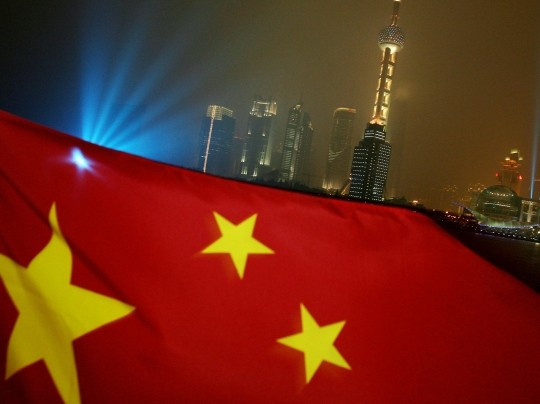Year of the Dragon: China Breathes Fire into Market Liberalisation Plans

China has taken its latest major step towards market liberalisation, following reports that it is giving foreign hedge funds permission to access domestic investors looking to invest into funds overseas.
According to unnamed sources cited by the Financial Times, China will be dismantling regulations that have previously prevented foreign players to access domestic investors in order to conduct cross border transactions.
The move is the latest significant step that China has taken this year, after the country showed other aggressive moves towards deregulating its market and making it more open to foreign participants.
It has already shocked the market with two interest rate cuts in under a month and it has boosted the quota for qualified foreign institutional investors by 166 percent this year.
IBTimes UK takes a look at how 2012 is shaping up to be one of the most fundamentally important years towards China market liberalisation.
China Opening Its Capital Account
China's decision to open its capital account to foreign investors will be a much needed step in re-establishing confidence and hopefully transparency in the country's markets and investors that have been marred with scandal and secrecy over the years.
While China still has a way to go in order to gain a fully liberalised market, the FT report which details how foreign hedge funds will now be able to tap into China's wealthy citizens, will mean a key step into moving towards a more integrated international marketplace.
The new mechanism allowing foreign hedge funds to tap into domestic capital accounts will be called the Qualified Domestic Limited Partner programme with an initial ceiling of $5bn and will invite these types of investment firms to apply for licenses to register in Shanghai, said the FT citing two sources.
According to the same unnamed sources, appetite is strong and one of the world's largest hedge funds, with at least $10bn assets under management, will be signing up.
Currently there is very limited foreign player access to China's markets.
Foreign market participants view the domestic stock market as risky and its bond market is seen as underdeveloped compared to the West.
Abroad, the country has been marred by overseas listed stock scandals over the last few years, which has rocked investor confidence.
On Wednesday 11 July, a company that has been synomous with China stock scandals, Sino-Forest Corp, said it terminated a proposed asset sale, in favour of a plan that will result in the company's creditors acquiring all of its forestry assets.
Last year, the company's shares tanked after a short-seller accused it of exaggerating the size of its forestry assets and the forestry group's stock has since been de-listed by the Toronto Stock Exchange.
One of Canada's main securities regulators, the Ontario Securities Commission have recently charged the company and some of its former executives with fraud.
The move to open its doors to its direct markets and people would improve appetite and confidence through more transparency in China, making it a more international player.
Foreign Investors
Until recently, foreign investors made up only 1 percent of trading on China's A-shares market.
However, the government in April 2012 China's State Council gave the green light to raise the quota for QFIIs from $30bn to$80bn, meaning these firms that fall under the programme will be able to access the mainland Chinese market, circumventing the country's strict capital controls on Chinese bond, equity and bank deposit markets.
The move this year was widely seen as a big push from the government only raised QFII quotas the previous time in 2007 to $30 billion, from $10bn, in order to create a more liberalised and transparent market place.
The reforms could also mean an improvement over the standards of governance, after the spate of China stock market scandals.
Currency policy
This year has been China's most aggressive year in liberalising its currency.
At the beginning of this month, China hit the markets with its second surprise interest rate cut in less than a month, in a bid to push forward on banking policy changes.
As soon as the first interest rate cut was implemented at the June this year, many analysts predicted that China is moving towards a market where interest rates will be set by the market, and developing financial markets so that credit can be allocated more efficient way, rather than by the government; liberalisation.
The People's Bank of China (PBOC) slashed the one-year lending rate by 0.31 basis points (bps) and the one-year deposit rate by 0.25 bps. China also allowed banks to offer bigger discounts on their lending costs after it revealed that lending rates will be allowed to fall to 70 percent.
The step towards financial liberalisation overall is a key factor for China, which has taken a number of steps to deregulating its market and making it more open to foreign participants.
"The government is trying to strike a better balance between stabilizing growth in the short term and adjusting structure in the long term," said Peng Wensheng, chief economist in Beijing at China International Capital Corp, who worked at the International Monetary Fund and Hong Kong's central bank.
© Copyright IBTimes 2025. All rights reserved.






















